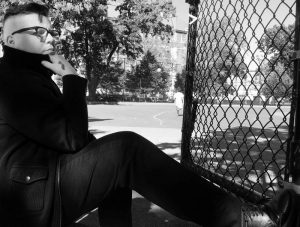All
New York Times: Dormant Transgender Rights Cases See New Life in Supreme Court Ruling
“Twelve people in Oklahoma understood that this trans woman was discriminated against, and they should have their verdict back, and she should have her life back,” said Jillian Weiss, an employment discrimination lawyer who is representing Ms. Tudor.
Transgender Americans such as Rachel Tudor have been fighting for their rights at work, school and housing for years. On Monday, the Supreme Court gave them hope.
WASHINGTON — The only thing Rachel Tudor wants more than to be herself is to teach.
After transitioning from male to female in 2007, Ms. Tudor, a professor at Southeastern Oklahoma State University, applied for tenure to ensure she could do both. But her path was blocked by members of the university’s administration, including one who wondered if she could be fired for her new gender identity. In 2011, she was out of a job.
Nine years later, the Supreme Court seemed to confirm on Monday that the university’s actions violated Ms. Tudor’s civil rights, when six justices ruled that Title VII of the Civil Rights Act extended to gender identity. Ms. Tudor’s long-stalled federal employment suit was granted new life.
“When I read what they decided, I felt a page had turned not only in my life, but in the nation’s, and in the history of civil rights,” Ms. Tudor said in an interview on Tuesday. “I hope that as a result of the Supreme Court decision, no one else will have to live with the dilemma of having to choose between doing what they love and being who they are.”
Read more:
https://www.nytimes.com/2020/06/17/us/politics/transgender-rights-cases-supreme-court.html Continue reading
Bloomberg Law: Top Court Ruling on LGBT Workers Will Reverberate in States
Courts in conservative states have issued rulings saying they follow Title VII, and those states will likely yield to the federal law, said Jillian Weiss, an attorney with Outten & Golden who works with the firm’s LGBTQ Workplace Rights Practice Group.
The U.S. Supreme Court’s landmark decision giving LGBT workers federal anti-discrimination protections will ripple across those states without laws that explicitly prohibit bias based on sexual orientation or gender identity.
State courts aren’t bound by the high court’s ruling that interpreted Title VII of the 1964 Civil Rights Act. But they’ll be persuaded by the decision and its reasoning that bias “because of sex” includes orientation or identity discrimination, especially if their state law was modeled on Title VII or includes similar language, legal observers said.
The scope of state workplace bias laws could have a significant impact on LGBT workers despite Title VII covering the entire country. That federal law doesn’t apply to companies with less than 15 employees, meaning millions of workers at very small businesses must rely on state-level protections.
Workers might also choose to sue under state law instead of Title VII due to statute of limitations issues, the state law having more generous remedies, or a desire to keep their case in state rather than federal court.
New York Times: L.G.B.T.Q. Rights Ruling Pushes Workplace Dynamic Already in Motion
The Supreme Court decision gives plaintiffs leverage, but companies large and small are still expected to face legal cases over their policies.
Ms. Weiss said she expected the decision on Monday to change her bargaining position in settlement talks with defendants who had said, “We’re not going to give you more because once the Supreme Court rules, then we’d have to give you zero.”
If, by contrast, Ms. Cote had brought her case after the Supreme Court ruling on Monday holding that lesbian, gay and transgender employees are covered by the civil rights law that protects workers from discrimination on the basis of race, religion and sex, said one of her lawyers, Janson Wu, executive director of LGBTQ Legal Advocates & Defenders, the case would probably have been resolved much more quickly.
Greater Salt Lake police officer who is transgender sues department for alleged discrimination
For the majority of his career at Unified Police Department, Taylor Scruggs loved his work. If he wasn’t taking phone calls or writing reports, he said, he was being proactive, out finding stolen cars or fugitives or illegal drugs.
A former teacher, he said he loved the ebb and flow of police work, that every day was different than the one before. But there was at least one constant.
“I went home every night, and was like, ‘Man, I can’t wait to get up tomorrow and do this all over again,’” Scruggs said.
Yet when the UPD detective, with ten years of experience on the force, came out as transgender and started physically transitioning, people around the office treated him differently, he said…
Read more: https://www.sltrib.com/news/2020/04/24/ex-unified-police-officer/
Transgender professor at Kingsborough College sues school over gender discrimination

A transgender English professor at Kingsborough College says colleagues’ failure to use up-to-date they/them pronouns partly justifies they/their lawsuit against the school for gender discrimination.
Red Washburn, who uses they/them pronouns and has taught English and Women and Gender Studies at the CUNY Brooklyn community college since 2011, alleges in a Brooklyn Federal Court lawsuit filed Friday that the school began discriminating against them in 2017 when they came out as transgender.
Washburn’s boss continually referred to the professor by their [“dead name” (former name)] despite the fact that Washburn legally changed their name to “Red.” Colleagues also continued to use the pronouns “she” and “her” for Washburn, despite the fact that the professor repeatedly advised them to use they/them pronouns.
“While occasional misgendering could be attributed to innocent error, the protracted and continuing misgendering of Dr. Washburn, despite continued notice, created a hostile environment based on gender,” the lawsuit says.
Washburn claims the school defunded the Women and Gender Studies department soon after Washburn came out as transgender.
“Six months after I came out as trans at work by requesting a name and pronoun change and sharing that I was getting top surgery, Kingsborough’s administration announced that it was defunding my concentration,” Washburn wrote in an op-ed for the Daily News in June.
Top surgery is reconstructive surgery to a transgender person’s chest.
Washburn also alleges in the lawsuit that they were moved into a new office at the school that was no more than a tiny storage closet, claiming the room did not even have space for a desk.
In the fall of 2018, the day before classes started, Kingsborough College cancelled Washburn’s Sexuality and Literature class, claiming the enrollment was too low, the lawsuit said.
“This explanation was incorrect, as the amount of enrollment was the same as that considered sufficient for other classes,” the lawsuit said.
“[Kingsborough College] is, I believe, a safe place neither for gender non-conforming and trans faculty to work, nor for such students to learn,” Washburn wrote in their op-ed.
Noah Goldberg
New York Daily News
Noah Goldberg covers Brooklyn supreme and federal courts for the New York Daily News. He previously covered criminal justice for the Brooklyn Eagle.
Teacher Harassed and Ousted from Upper East Side Middle School
A former social studies teacher at an Upper East Side public middle school was relentlessly hectored by students and colleagues — and eventually let go — because he is gay and stood up for a bullied student, a new lawsuit alleges.
During his two-year tenure as a full-time teacher at Robert F. Wagner Middle School, Robert Halkitis suffered a campaign of harassment that included vandals scrawling a slur on his bulletin board and a student calling him a “f—ing f—-t” in his classroom, alleges a lawsuit filed in Manhattan federal court on Monday.
The torment also included a school clerk suggesting that he was having a sexual relationship with a male colleague on school grounds, court papers say.
Halkitis’s sexual orientation wasn’t the only reason he lost his job — he often stood up for a “non-binary, gender non-conforming student” who was bullied throughout middle school for their gender expression, he alleges.
According to court papers, Halkitis informed school principal Jennifer Rehn-Losquadro — also a defendant in the suit — about the bullying and was told that she would “look into it.” But Halkitis claims that the student’s reports of harassment were not included in the school’s Online Occurrence Reporting System report to the Department of Education.
In June, Halkitis received word that his contract was being discontinued but was not given a reason. This came after Halkitis received ratings of “effective” on his annual teacher assessments for both years of his tenure, he alleges.
“I think he was thought of as a really good teacher,” Jillian Weiss, an attorney representing Halkitis in the case, told The Post. “He was standing up for students who were receiving bullying in the classroom and he was receiving no support.”
Since his dismissal, Halkitis has been unable to find work with other districts — and he claims Donalda Chumney, the superintendent for the district that includes Robert F. Wagner, scuttled his chances of getting a new job with another DOE school by having his nomination revoked.
Miranda Barbot, a DOE spokeswoman, said the department will review the suit.
“All staff have a right to a working environment free from discrimination,” she said.
Halkitis is seeking unspecified damages.
It isn’t the first time this year that Robert F. Wagner has come under fire for the way it handles reports of bullying.
In March, the mother of an African-American sixth-grader at the 1,350-student school learned that a white classmate made a noose from yarn and draped it around her son’s neck — and that a teacher witnessed the racist incident but did not report it to administrators.
AP Analysis: Most States Lack Laws Protecting LGBT Workers
“If the Supreme Court sides against LGBT employees, it means they have to be really cautious and careful about living their lives openly and proudly,” said Jillian Weiss, a New York attorney who focuses on LGBT discrimination cases. “They may encounter a lot of discrimination, and there may not be anything they can do about it.”
The chief said that once members of the tiny Fire Department were told, word spread “faster than a nuclear explosion” through Byron — a city of about 4,500 in a farming region outside Macon known for growing Georgia’s famous peaches. The fire chief was undergoing a gender transition and would continue to run the department as Rachel Mosby. A City Hall staffer told Mosby many were stunned because “I was the manliest man anyone had met in their lives.”
ACLU: Fired for Being Trans: Celebs Read from Letter that Led to SCOTUS Case
10-8: how scared should we be? – Queersplaining
Callie Wright of Queersplaining Podcast interviewed me on the topic of “how scared should we be?” about the upcoming SCOTUS case on workplace sex discrimination and LGBTQ rights and I gave her my sure-to-be controversial hot take.
As Callie put it: “Some important stuff is happening at The United States Supreme Court on October 8th. The question: does the 1964 Civil Rights act protect LGBTQ folks from employment discrimination. Lots of folks are pretty nervous, and I am too. So I talked to an attorney who specializes in this sort of thing and asked her what she thought. Her surprising take is that she thinks we’ll win. Listen to find out what she thinks might happen.”
See this link: http://www.queersplaining.com/2019/08/29/10-8-how-scared-should-we-be/
Virginia Schools’ Bathroom Rule Violates Transgender Rights, U.S. Judge Says
NY Times: Virginia Schools’ Bathroom Rule Violates Transgender Rights, U.S. Judge Says The ruling is an important victory for transgender rights advocates as legal battles over school bathroom policies continue to play out across the country. https://ift.tt/2GX7MXI
See this link: https://www.nytimes.com/2019/08/09/us/virginia-transgender-bathroom-policy.html?smid=nytcore-ios-share






